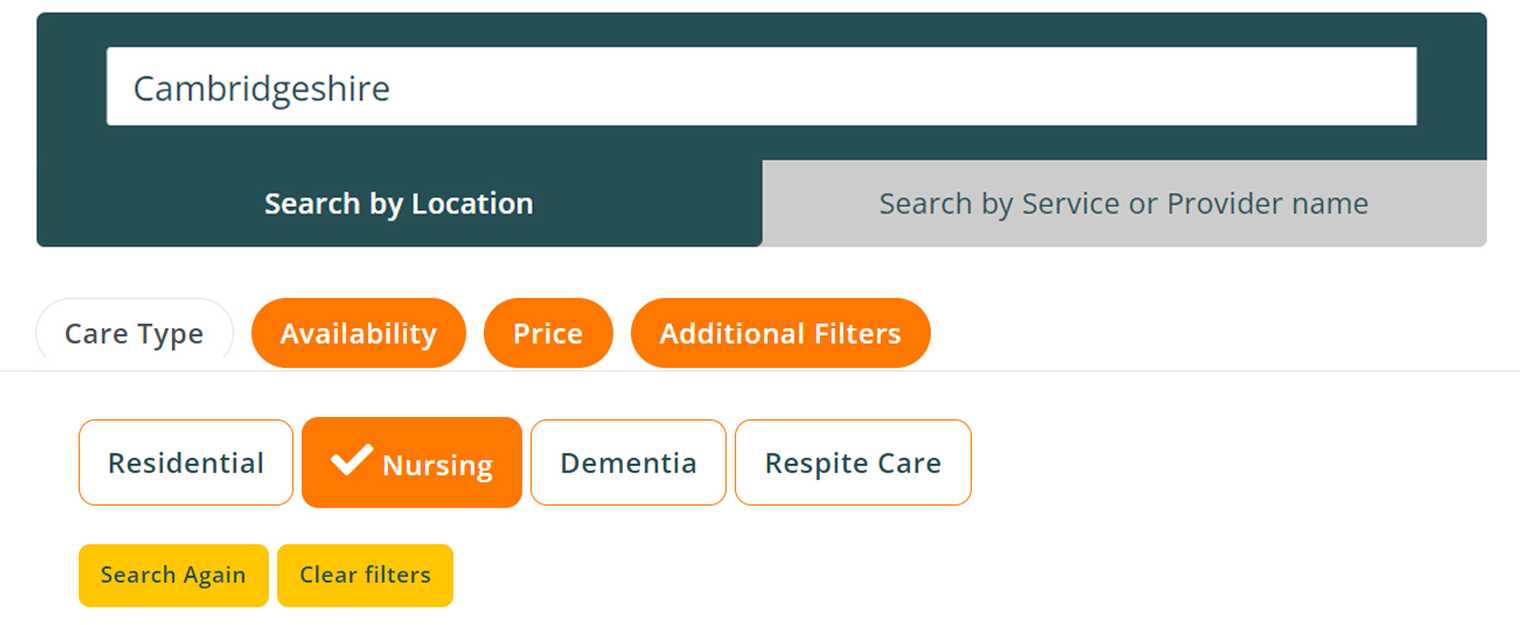Posted by Hannah Rowe
Continuing Healthcare Funding (CHC)
In the second of our new series explaining the terminology you may come across in health and social care, we decipher Continuing Healthcare (known as CHC) funding.
- What is CHC Funding?
- What is a ‘Primary Health Need’?
- Who decides whether someone is eligible for CHC funding?
- How long does CHC funding last?
- What if the condition is terminal – is CHC funding still a possibility?
- What can I do if CHC funding is refused?
- Can I get CHC funding if I live in Scotland, Wales, or Northern Ireland?
- What’s the best way to find nursing homes near me?
What is CHC Funding?
CHC Funding is a package of care for adults aged 18 or over who may need ongoing care and support from health and social care professionals as a result of disability, an accident, or an illness. It is funded by the NHS and is free to recipients regardless of income, unlike support provided by the local authority which is means-tested. For more information on the means test, read our blog ‘Can My Care Home in England be Sold to pay for long-term care?’
To be eligible for CHC funding, the person will have been identified as having a ‘primary health need’. It is often awarded to people in care homes, as they usually have the most complex or unpredictable medical care needs. It can also be given to people living in their own homes, where it will pay for services such as a community nurse or therapist; or for social care needs such as personal care. It can also be used for the more intensive care services often needed when someone is reaching the end of their life.

What is a ‘Primary Health Need’?
A patient will be deemed to have a ‘primary health need’ if dealing with health issues is the most important aspect of their need for care and support. Their health will be assessed using a strict process which considers:
- the nature of their health needs and the impact these have;
- the intensity of health needs and the level of support needed;
- the complexity of health needs and the level of medical expertise required;
- and finally, how unpredictable the health needs are, which affects the ease with which they can be managed.
Who decides whether someone is eligible for CHC funding?
A patient can be referred for CHC funding from several places, including a hospital, care home, or GP. The assessment for funding is a two-step process. The first step is completed by a member of staff from the NHS or social care and is known as the ‘checklist tool’. If this stage is passed, then a full assessment is carried out by a team of two or more health or social care professionals. The patient and/or their representative should be fully involved in the assessment process.
The decision as to whether they are eligible lies with organisations called integrated care boards (ICB), which are part of the NHS and are located across England. The ICBs are responsible for developing plans which meet the health needs of the local population, including managing the NHS budget and arranging for the provision of health services in the area.
How long does CHC funding last?
There is no set time limit for CHC funding. It will usually be reviewed after 3 months, and every year thereafter.
What if the condition is terminal – is CHC funding still a possibility?
If medical professionals deem that the person’s condition is deteriorating quickly and/or is terminal, you may hear them speak about a ‘fast-track pathway’. This is designed for these situations and means that there is no requirement to complete the two-step assessment process. Instead, a clinician will complete the fast-track pathway tool to establish eligibility for funding. Once the ICB receive this document, a package is normally set up within 48 hours.
What can I do if CHC funding is refused?
If the ICB turns down the request for CHC funding, you should be given information about how you can challenge their decision. If you have not been offered a full assessment after the initial ‘checklist tool’ has been used, or you have had an assessment but disagree with the outcome, you can ask for it to be reconsidered.
Can I get CHC funding if I live in Scotland, Wales, or Northern Ireland?
CHC funding is available in Wales and Northern Ireland.
The scheme in Scotland is slightly different. It is called Hospital Based Complex Clinical Care, and the assessment will be based on whether or not the patient’s care needs can be properly met in a setting other than a hospital.
If care needs can only be met in a hospital, the NHS will fully fund the care in this setting only. If the patient’s care needs can be met elsewhere then they will be discharged from NHS care to a community setting, such as their home, a care home, or supported accommodation. In this circumstance the NHS won’t fund aspects of care which are not healthcare, so the patient may wish to apply to the local authority for support. In Scotland, everyone receives free personal and nursing care up to a certain limit if they have been assessed as needing it. However, you will still have to contribute towards accommodation costs in a care home. For more details on this, visit the Care Information Scotland website.
What’s the best way to find nursing homes near me?
The Autumna directory allows you to search for nursing homes anywhere in the UK.
Just go to the Autumna homepage, select an area you would like to search – for example Cambridgeshire. Then click the 'Care Type' filter option and select 'Nursing'. After that, click ‘Search Again’.

You'll find information on all the nursing homes in Cambridgeshire.
Or, to make it easier for you to find homes in your area that provide the type of care you need, why not fill in this short questionnaire and Autumna will do the search for you.
And don’t forget, you can always talk to one of our friendly team of elder care experts on our advice line: 01892 335 330. It’s open every day of the week (8:30am - 5:30pm Mon-Fri, 10am - 5pm Sat, 10am - 4pm Sun).
Other articles to read
Autumna Blog

Older Persons Care Advice
The Effects of Music Therapy on People Living with Dementia
March 12th, 2024
How can music help people with dementia feel calmer, happier and more connected to people? Find dementia-friendly playlists here.

Older Persons Care Advice
Day Care – A first step, respite, or to have fun!
March 12th, 2024
A chance to socialise means the world to some older people. Day Care services for respite provide an opportunity to laugh, learn and listen to like-minded people. Here's how.

Older Persons Care Advice
How Much do Pensioners Need a Year to Retire?
February 8th, 2024
Women's retirement savings are on average £69,000 while men's savings equate to £205,000. Autumna looks at why women’s retirement funds are less than men's in the UK and how that affects their choice of care.






